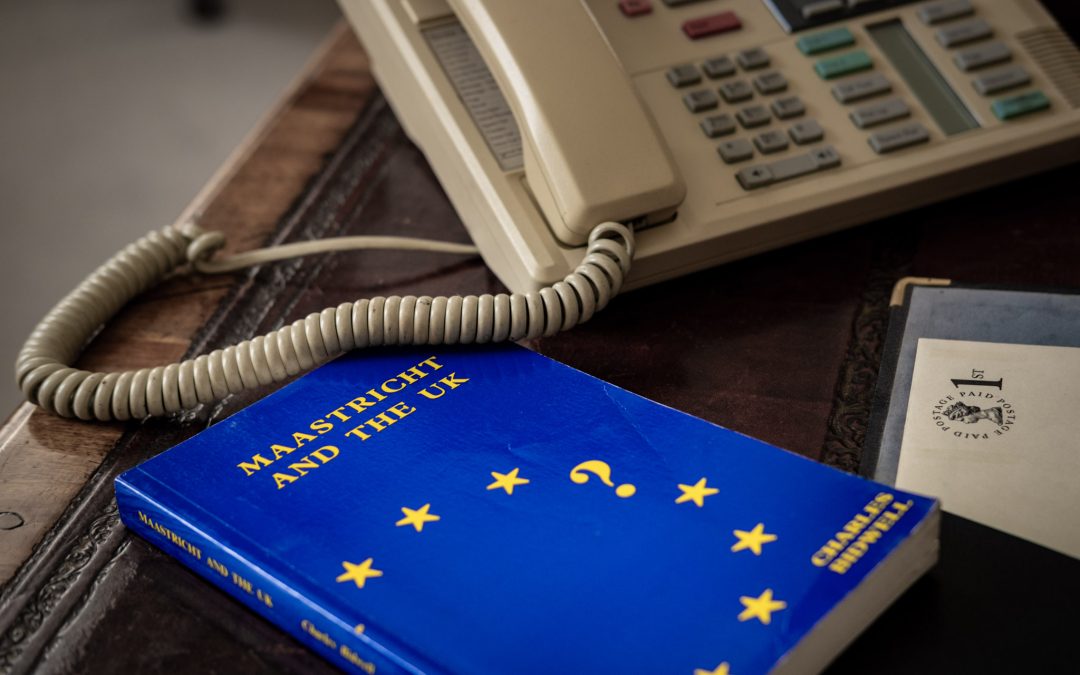Britain joined the European Communities in January 1973 – one of the key achievements of Edward Heath’s Government. Here at Arundells we are marking the anniversary in two ways. First through an exhibition: ‘Britain’s Long Road into Europe 1950-1975’ and, secondly, through a major discussion event on 4th September ‘Britain & Europe – What Might Have Been?’
The exhibition charts Britain’s ambivalence towards greater European unity during the years after the Second World War as the country came to terms with the start of the loss of Empire and the humiliation of the Suez Crisis. Having opted out of the talks that led to the creation of the European Economic Community in 1957, by 1959 Britain was having second thoughts. Under the Government of Harold Macmillan, Britain applied for membership in 1961. Edward Heath was his chief negotiator. The negotiations progressed but, seemingly convinced that Britain was not sincere in its commitment to European unity, French President De Gaulle, halted the process by wielding a veto. This failure broke the back of Macmillan’s government and he observed ‘all our policies at home and abroad are in ruins’.
Harold Wilson’s Labour Government submitted a fresh application in 1967 but that too foundered on the rock of French opposition. De Gaulle left office in 1969 but was succeeded by his political ally, Georges Pompidou. Edward Heath returned to the fore with his election victory in 1970 and he set about trying to win Pompidou round. As Heath’s Political Secretary, Douglas Hurd, recorded ‘Pompidou had to believe that Britain was coming into Europe not out of despair, not to make trouble, but as a capable and determined partner.’ Against the odds, Heath succeeded – probably his paramount political achievement. The exhibition then describes the process of winning Parliamentary approval and the confirmatory referendum of 1975.
In marking the fifty years since membership, Arundells is bringing together a distinguished panel of individuals who were at the centre of Britain’s European policy-making. They include Sir David Lidington (former Lord Chancellor and Europe Minister 2010-15); Lord Liddle, Tony Blair’s European Adviser; Sir Stephen Wall, Britain’s Permanent Representative in Brussels and historian of British membership; and Phillip Stephens one of Britain’s foremost political commentators. The panel will be gathered in the Arundells’ garden on 4th September for an evening of robust debate.
The discussion will review the conduct of Britain’s European policy, including assessing its achievements in areas like the creation of the single market; foreign policy co-ordination; regional policy and enlargement. But it will look too at relative failures on issues like economic and monetary union and migration and ask whether these marginalised British influence? The panel will also discuss the extent to which short-termism, the nature of British domestic politics and lack of consensus building tradition, acted as a constraint on our ability to shape the debate about Europe’s future direction. In other words, were opportunities missed and was the parting of the ways that flowed from the 2016 referendum, ultimately inevitable?
The exhibition ‘The Long Road into Europe 1950-75’ runs from the beginning of September until the house closes for winter in early November.
Britain & Europe – What Might Have Been? – Panel Discussion
Monday 4 September, 7pm
For tickets and more information: EVENT PAGE
Photo: Luke Futcher 2023

